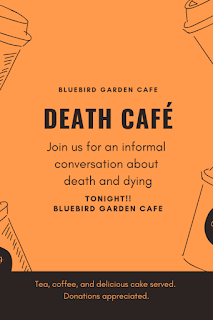The making of an Anthology!
I have been lucky enough to have been included is some amazing anthologies in the past. I have also had the opportunity to work with Andi on putting together a few of our own.
So, how does an anthology actually begin? And what makes for an enjoyable experience?
There are several different types of anthologies. There are those that the authors apply to enter. There are those that the authors are invited to take part in. They can be for a charitable cause, or simply to give readers a taste of the plethora of different the authors’ works.
It’s a great way to find new authors and enjoy the ones you already know.
Andi and I were talking out loud one day - at Starbucks of course! Lol - about putting together an anthology of our own, with authors we know and love. Something light, and fun. Something to raise money for a cause that is near and dear to us, The American Cancer Society.
A basic theme must be chosen, and we knew on our particular project we wanted light fantasy and romance. We wanted our readers to lose themselves in sweetness!
We tossed around a bunch of ideas, and finally came up with Sweet Treats! I mean, what’s lighter than sugary confections? Right?
 That being decided, we wanted to make sure that everyone involved in the process would be kept in the loop. That’s the second most important part of organizing an anthology.
That being decided, we wanted to make sure that everyone involved in the process would be kept in the loop. That’s the second most important part of organizing an anthology.
The authors you include are sharing their words. Their work. Let them know what’s going on with their babies. Because, let’s face it, as authors, the words we put on the page ARE our babies. Then, let the creative minds create!
In part two of this mini-series, Andi will get into the legal and technical aspect of putting together an Anthology, because she is one of the most organized people I have ever met. And DON’T let her tell you any different!
From past experience, I knew that for the next project I did, I wanted to gather together a group of authors I knew were diverse in their voices. I truly love nothing better than an anthology that is a smorgasbord of creativity.
Anthologies usually stick to a specific genre, but I would rather stick to a theme and pepper in all types of stories: dark, light, happily ever after’s and…not so happily ever afters.
I firmly believe in giving readers a bunch of different stories to fall into. Let them maybe try something they may have thought they wouldn’t really enjoy, only to find themselves swept in!
Okay. So now, you’ve chosen your theme, it’s time to collect your talent!
The author world is a close-knit world, and as an author, you are lucky enough to get to know so many talented people. You can
pretty much tell who you will work well with, and who you might not. And, believe me, there may be mishaps, but it’s all a wonderful learning experience.
pretty much tell who you will work well with, and who you might not. And, believe me, there may be mishaps, but it’s all a wonderful learning experience.
So, get your group together, keep everyone up to date and let the creative juices flow!
Anthologies are so much fun to do if you’ve got a great
group. Not to mention that they are fabulous for the reader too! They can
experience so much talent!
As I said, part two will get into the nitty gritty of the
formatting, publishing and legal stuff.
Thanks for reading!
Dar


























































